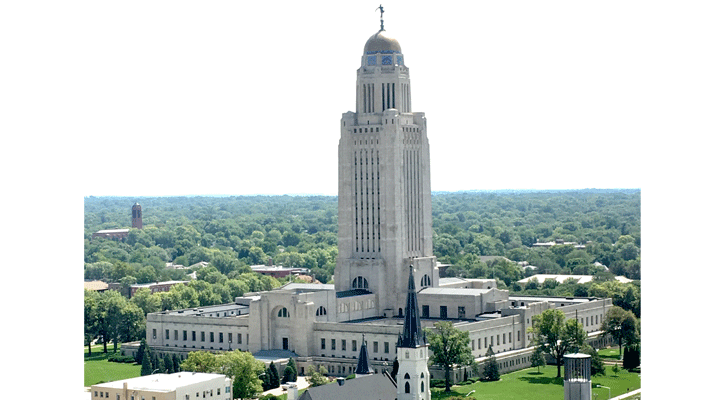
By GRANT SCHULTE-Associated Press
LINCOLN, Neb. (AP) - Nebraska lawmakers returned to their session Monday with lingering concerns about the coronavirus and extra safety precautions that will likely remain in place until they adjourn for the year.
The 60-day session resumed with plexiglass barriers separating lawmakers in the legislative chamber, mandatory temperature checks to enter and tougher restrictions on who can access the room.
Lawmakers took the highly unusual step of suspending their session on March 25 to try to keep the virus from spreading after they passed an emergency coronavirus funding bill to cover the state's pandemic response. They took no other action for nearly four months but still have 17 scheduled work days remaining this year.
"A lot has changed and we still have a lot to do," said Speaker of the Legislature Jim Scheer.
Scheer extended his sympathies to state Sen. Tony Vargas, of Omaha, whose father died from the COVID-19 virus in April.
Another lawmaker, state Sen. Mike Moser, of Columbus, was hospitalized and put on a ventilator after contracting the virus, but has since recovered. Moser, a conservative Republican in the ostensibly nonpartisan Legislature, urged his colleagues to don a mask to protect one another. At several points Monday, roughly one-third of the Legislature wasn't wearing a face covering.
"I'd encourage you to set aside your apprehensions and reluctance to go along with the crowd," Moser said in a floor speech to his colleagues. "This is one of those times when I think we should pay attention to science and not take those chances."
Lawmakers will get a better sense of the state's financial outlook on Thursday, when the Nebraska Economic Forecasting Advisory Board meets to update its state revenue projections. Some senators have expressed optimism that Nebraska's economy has fared better than other states, given that its unemployment rate is still among the lowest nationwide.
Property taxes and the incentives bill are arguably the most high-profile issues senators will confront, along with the potential impact of the coronavirus on the state. Lawmakers are also expected to consider legislation to further clamp down on abortion rights and impose anti-bias training requirements for police. The training bill was on their radar before several high-profile police killings of Black citizens, but it's likely to gain new significance in the wake of Black Lives Matter protests.
This session could also be the last for Sen. Ernie Chambers, the state's longest-serving and best-known lawmaker, who will have to leave the Legislature for at least four years before he can run again. Chambers is famous for his ability to single-handedly filibuster bills, often bringing the Legislature to a standstill.
Chambers was forced out of office for four years in 2009 due to newly enacted term limits, but returned to his old seat in January 2013. He served two more terms and will be forced out of office again in January 2021.
State law restricts lawmakers to two consecutive four-year terms, but allows them to return after sitting out for one term. Chambers, now 83, hasn't said whether he'll run again.
"You, believe it or not, are going to miss me when I'm gone," Chambers said in a floor speech.
Lawmakers are scheduled to adjourn for the year on Aug. 13.




